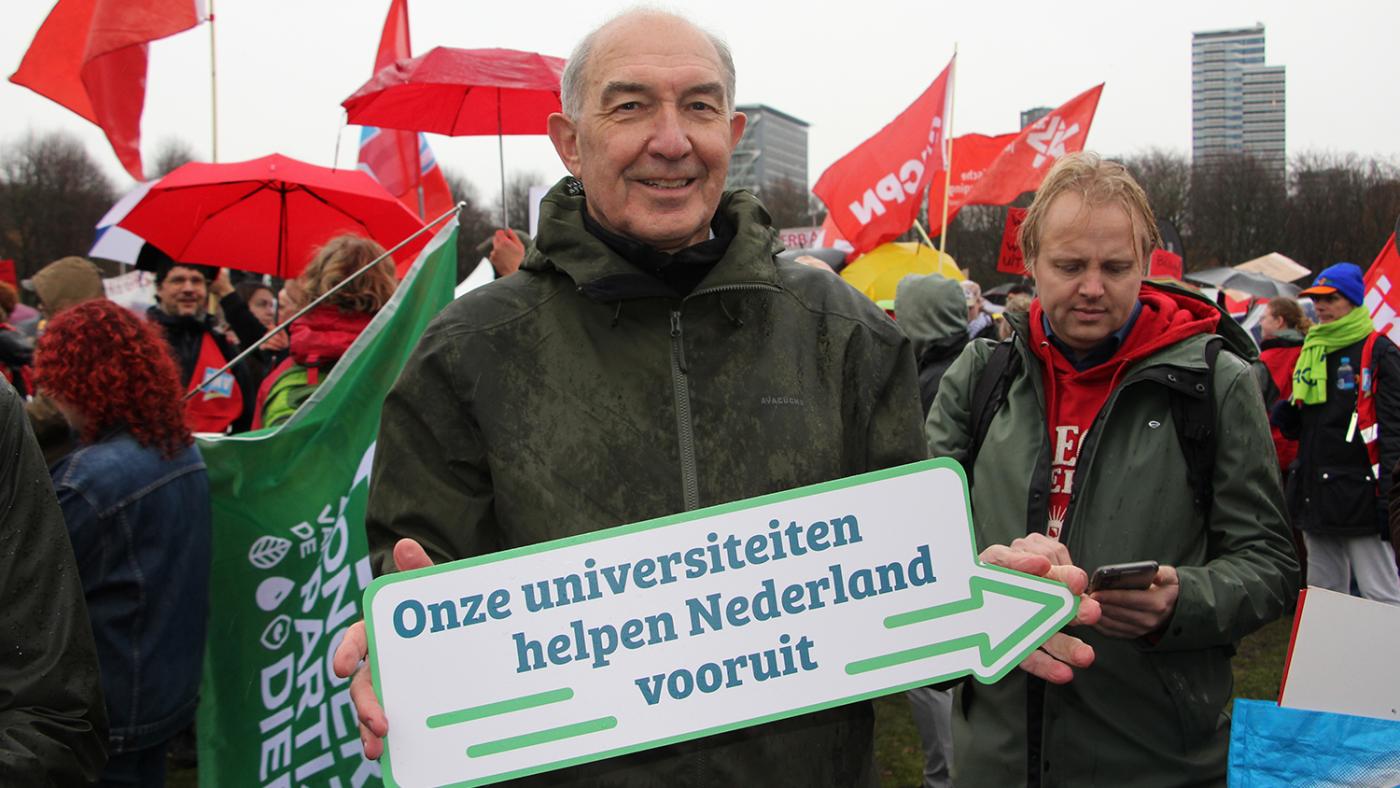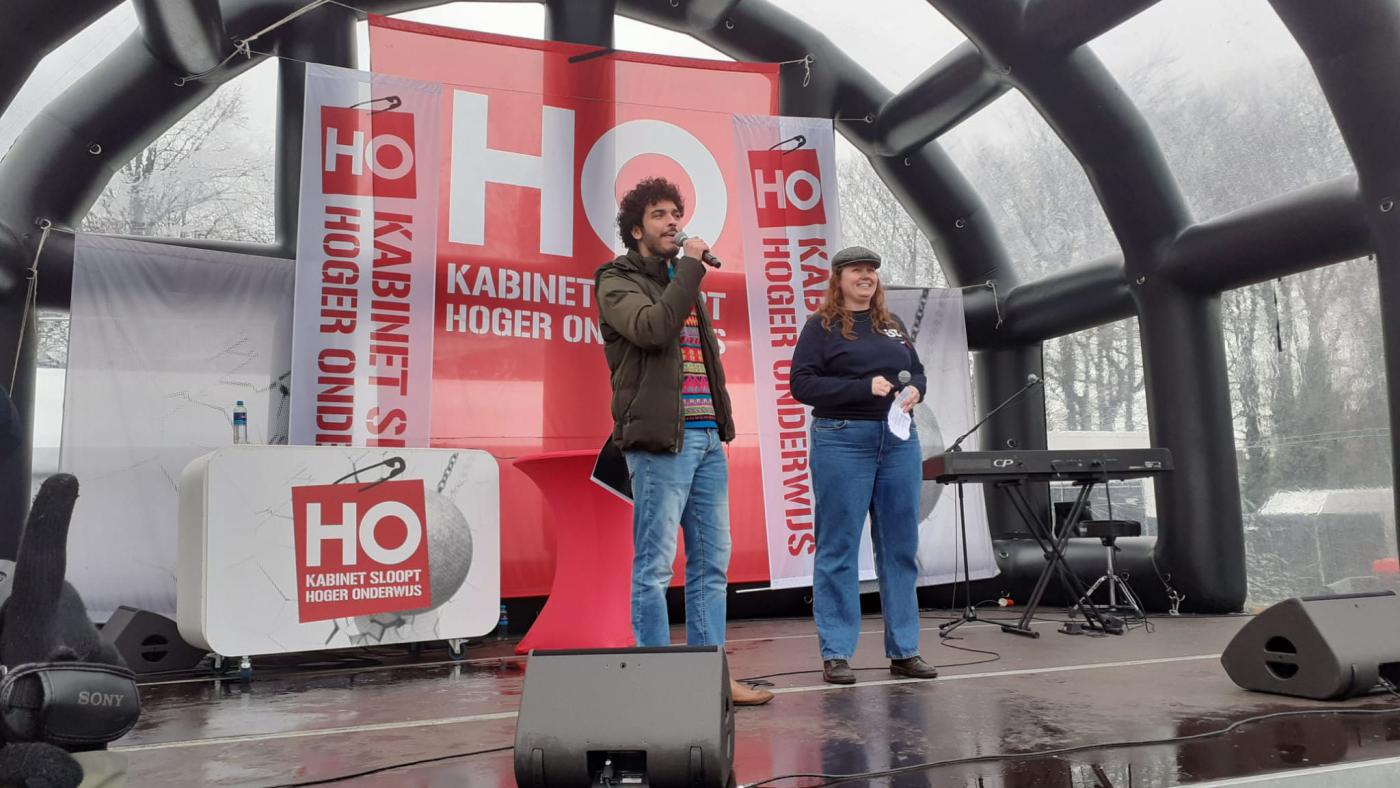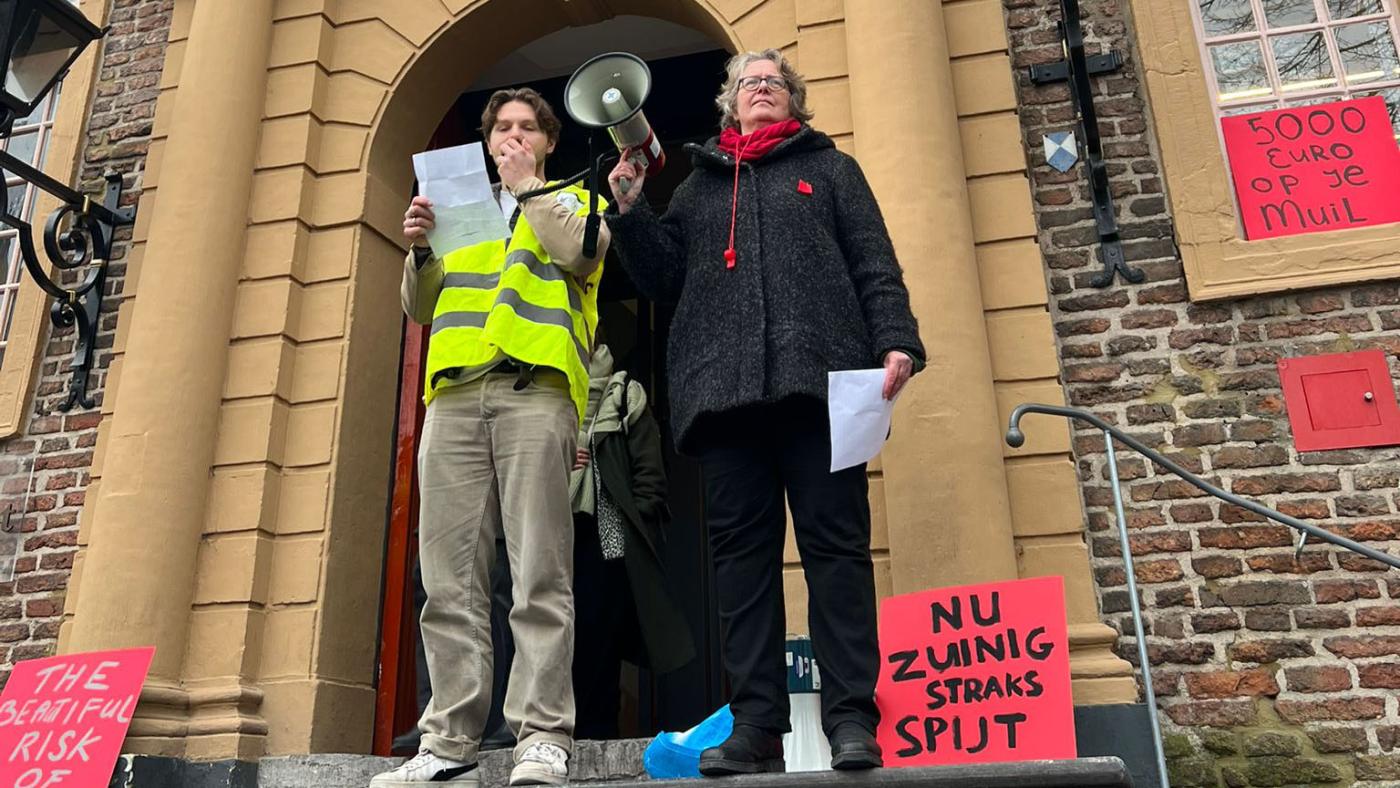Cabinet let go of the fine for late graduation
Austerity measures remain practically intact with opposition's support

The government spent the past few weeks meeting with opposition parties CDA, ChristenUnie, SGP and JA21 to negotiate the education budget. Centre-left party D66 was initially part of the opposition alliance but left the negotiations because it considered that the government was not flexible enough.
The four coalition parties (PVV, VVD, NSC and BBB) had to negotiate with the opposition because they do not have a majority in the Senate. If the Senate didn't approve the budget, the previous budget (devised by the previous cabinet) would remain in place. The rest of the opposition parties were not willing to compromise: they would vote against it no matter what.
After talking for weeks, they finally reached an agreement on Wednesday night. The fine for students who take longer than one additional year to graduate is off the table and the reduction of the foreign student influx will be toned down in areas where the population is shrinking. The cutbacks on scientific research will be retained almost entirely.
The details are still unknown, but rumour has it that the grants for starting researchers have been "partially" maintained. Those are likely to be cut by 40 million euros.
Public transport card
The monster alliance managed to reduce the austerity measures by 748 million euros, part of which will be by the Ministry of Education, Culture and Science. the public transport card for students will be 75 million euros cheaper. This windfall is not retained for education, so one ends up with 673 million euros in mitigations.
The rest of the money will be taken from elsewhere, such as the Ministry of Health. One of the agreements is that medical specialists will pay more for continued education, though universities consider that money as part of education too.

UU President Anton Pijpers participated in the protest on November 25 in The Hague. Photo: DUB
Science is the biggest loser
Science is the biggest loser from this deal, underscores the association of Dutch research universities, UNL. The government will still cut half a billion euros from scientific research and higher education. UU President Anton Pijpers says: "It is a ridiculous contradiction that the cabinet mentions the word 'innovation' 85 times in its coalition programme, but at the same time wants to cut half a billion euros from the source of innovation."
Fine for late graduates
There is one thing Pijpers is glad about, however. He is relieved that the idea of introducing a fine for students who take longer than one additional year to graduate has been abandoned. That is one of the few positive things the National Student Union (LSVb) can say about the deal. Students Luuk Bruijnen, from the Utrecht student union Vidius, and Lieke Fokker, a member of the University Council for the Vuur party, both agree. Lieke: "This is a relief for many students in Utrecht, but it is disappointing that the opposition parties did not prioritise higher education any further than that."
Pien van der Meij, another member of the University Council, from the PvdUS party, shares the bittersweet feeling. "We are happy that the fine will not go through, but we fear the immense budget cuts coming our way. It is our job to be critical of it in 2025."
Luuk Bruijnen fears that the cuts will also affect mental health provisions now present in higher education institutions. He also disagrees with the cuts to the public transport budget. "A significant proportion of UU students live in other cities."
The student organisations are not planning on slowing down their protest. "It will not be a quiet spring for this cabinet", says LSVb president Abdelkader Karbache, predicting strikes.

LSVb president Abdelkader Karbache and the president of the National Student Association (ISO), Mylou Miché, give a speech onstage at the demonstration in The Hague. Photo: HOP
Attack on the rule of law
Calling for a strike, UU professor Ingrid Robeyns, an activist for the action group WOinActie, called for students and staff to walk out of their jobs on Wednesday afternoon to protest at Janskerkhof and Utrecht Science Park. "These cutbacks not only affect the quality of education and research but also the rule of law," she said.
The agreement was announced later that same day. For her, this deal confirms the weakening of the public sphere. The professor says the austerity measures are not legitimate. "This unilaterally terminates a 10-year governance agreement by the government. Hopefully, this will be reason enough for UNL to go to court."
Education impoverished
WOinActie says that the austerity measures will lead to layoffs at Utrecht University, which will increase the workload for everyone else. Temporary lecturers will not have their contracts renewed, with certain researchers facing an uncertain future. Robeyns: "We will end up in a downward spiral and that is exactly what Wilders wants: to weaken universities."
The plans to tighten the belt announced by the Faculty of Humanities, which include the termination of six programmes, are a preview of the consequences the austerity measures could have. According to WOinActie, the main consequence for students will be that education will be scaled down. "Not only will students have less choice, but they will get less feedback, less guidance and fewer contact hours," says UU Professor Bald de Vries, also a member of WOinActie.

Vidius chairman Luuk Bruijnen and Professor Ingrid Robeyns at a walk-out protest in Utrecht. Photo: DUB/Phine Hazelbag
Whistle orchestra
Utrecht was not the only city where protests took place on Wednesday. University students and staff demonstrated the government's plans for the education budget in 12 other cities. All protests were organised and supported by WOinActie and trade unions.
At VU University Amsterdam, several hundred staff and students formed a chain in front of the main building to symbolise the protection of education and research. A bycicle procession was organised In Nijmegen and "whistle orchestras" were performed in Tilburg, Maastricht, Rotterdam and Groningen, as well as in Utrecht.
Opposition parties
The four opposition parties in the "monster alliance" defended the deal. "We made a bad budget less bad," declared Henri Bontenbal (CDA). Mirjam Bikker (ChristenUnie) stated: "We support good policies and improve proposals where possible. The results of this negotiation are a good example of that." Chris Stoffer (SGP) considers that the budget has been substantially improved.
The remaining opposition parties do not understand why the four parties were not firmer. Luc Stultiens (GroenLinks-PvdA) calls the agreement a "historic blunder’"
Only D66, the party that initially was part of the alliance, was milder. "Good that CDA, JA21, CU and SGP have managed to soften the austerity measures slightly," party leader Rob Jetten tweeted. "Together, we got the fine for late graduates off the table." However, his party dropped out of the negotiations for a reason and Jetten still thinks the budget cuts are bad.
Geert Wilders, leader of the coalition party PVV, is "incredibly happy" that the cabinet can move on after all. "I am relieved because it was quite a struggle," he said.
Areas where the cutbacks will be milder:
| Area | Amount |
| Teachers' salaries | 75 million |
| Religious education | 19 million |
| Social service | 130 million |
| Religious heritage such as churches | 5 million |
| Abolishing late graduation fine | 282 million |
| Regional higher education (international students) | 125 million |
| Government-wide subsidies | 32 million |
| Scientific research | 40 million |
| Subsidies for schools and their environments | 40 million |
| TOTAL | 748 million |
Source: SGP